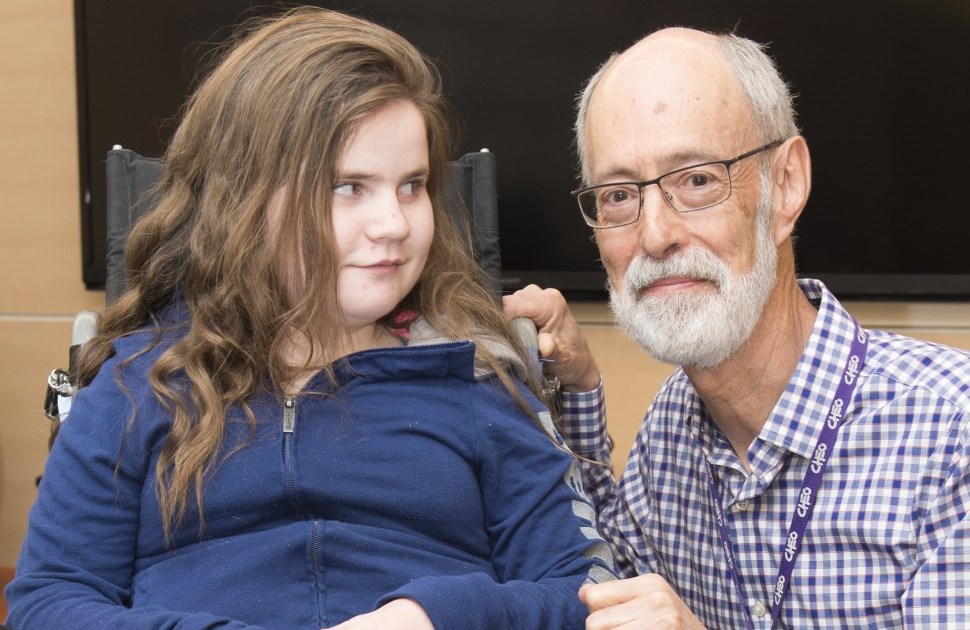What is Rett syndrome?
Rett syndrome is a genetic neurological disorder primarily affecting girls. Rett Syndrome is the second most common genetic cause of neurological disability in girls and women, after Down syndrome.
Rett syndrome is characterized by normal initial development followed by a period of regression that leads to loss of speech, normal movement and hand use between 6 months and 3 years of age. After the initial regression period, the clinical course stabilizes. While affected individuals do not typically gain back their language and fine motor skills, some can learn to walk and many can use alternative means of communication, such as eye-pointing. Rett syndrome is not a progressive neurodegenerative disorder. People with Rett syndrome can live well into their 50s and 60s. However, some develop progressive motor impairment with advancing age.
| Other features of Rett syndrome may include: |
|
Rett syndrome care at CHEO
CHEO provides consultative genetics care to children and adults with Rett syndrome and related disorders. Our pediatric neurologists see patients up to their 18th birthday.
This includes patients with:
- Classical or atypical Rett syndrome, with or without a MECP2 mutation
- CDKL5 deficiency disorder
- FOXG1 deficiency disorder
CHEO provides best-practice Rett syndrome expertise regarding:
- Neurological problems (seizures, dystonia, spasticity, apraxia, contractures)
- Autonomic dysfunction (breathing and cardiac dysrhythmia, constipation, vasomotor symptoms)
- Sleep and behavior issues
- Bone health and scoliosis
- Genetics and family planning
Our neurology nurse coordinates care related to Rett syndrome and can be reached at 613-737-7600 ext. 2159, Monday to Friday from 7 a.m. to 3 p.m.





